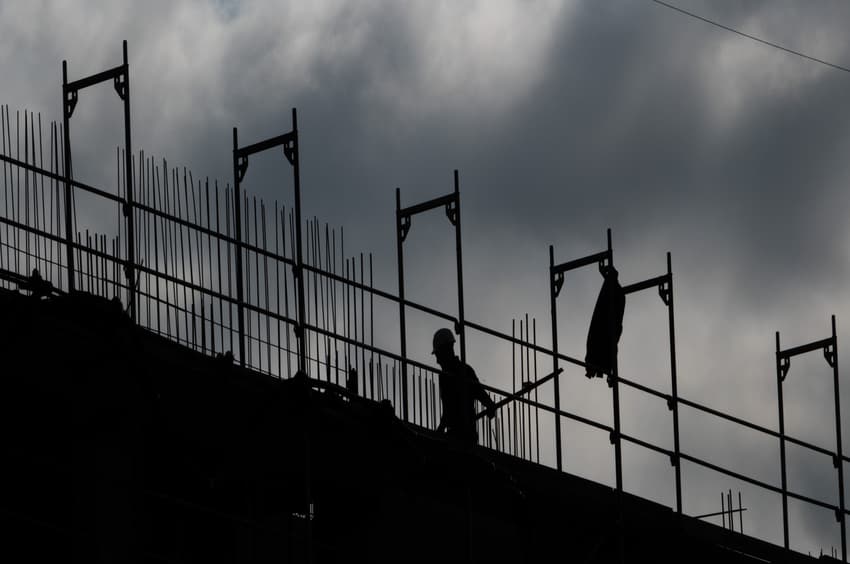How Germany plans to attract more workers from the Balkans

Alongside the new Skilled Worker Act, Germany is introducing measures to encourage more migration for workers from Albania, Bosnia and Herzegovina, Kosovo, the Republic of North Macedonia, Montenegro, and Serbia.
Germany's new Skilled Immigration Act, which is expected to come into force later this year, aims to make it easier and faster for skilled foreign workers from non-EU countries to come to the country, to help plug the growing labour shortage.
But in addition to passing the Skilled Immigration Act, the German parliament also agreed to expand the so-called "West Balkans Regulation", to make it easier for more workers from certain non-EU to come to Germany.
What is the West Balkans Regulation?
The West Balkans Regulation was first introduced in 2016 and grants nationals from Albania, Bosnia and Herzegovina, Kosovo, the Republic of North Macedonia, Montenegro, and Serbia access to the German labour market for any type of employment.
Under the current regulation, workers need a binding job offer from an employer in Germany and recognised qualifications.
Initially, the regulation was due to expire at the end of 2020, but, due to high demand from employers in Germany for workers from these countries, the regulation was extended until December 31st, 2023.
The regulation is considered a success model that has allowed employers in Germany to recruit up to 25,000 qualified workers every year from these countries.
How will the law change?
By expanding the law, West Balkans Regulation will remain permanent, and the annual quota of workers allowed from these regions will be doubled to 50,000 per year. They will be allowed to enter Germany for any type of employment without having to provide proof of professional qualifications.
This is particularly good news for the construction industry, which has welcomed the fact that the new regulation does not require qualifications from immigrants, but rather allows companies to decide whether long-term professional experience is sufficient for them.
READ ALSO: Why Germany could soon recruit Kita educators who speak 'no or little German'
As well as expanding the quota for workers from the Balkans, the German Parliament also intends to bring in a migration quota for unskilled workers from countries other than the West Balkans, who can show that they have an employment offer in Germany.
The number currently being discussed is 30,000, which will be determined by the Federal Employment Agency (BA) based on demand. These workers will be allowed to undertake any type of employment that requires social security payments for eight months within a year if the employer is bound by collective agreements and fully covers travel expenses.
There are also plans to give foreign nursing assistants below the skilled worker level access to the labor market, with the goal of acquiring approximately 1,200 additional caregivers.
Comments
See Also
Germany's new Skilled Immigration Act, which is expected to come into force later this year, aims to make it easier and faster for skilled foreign workers from non-EU countries to come to the country, to help plug the growing labour shortage.
But in addition to passing the Skilled Immigration Act, the German parliament also agreed to expand the so-called "West Balkans Regulation", to make it easier for more workers from certain non-EU to come to Germany.
What is the West Balkans Regulation?
The West Balkans Regulation was first introduced in 2016 and grants nationals from Albania, Bosnia and Herzegovina, Kosovo, the Republic of North Macedonia, Montenegro, and Serbia access to the German labour market for any type of employment.
Under the current regulation, workers need a binding job offer from an employer in Germany and recognised qualifications.
Initially, the regulation was due to expire at the end of 2020, but, due to high demand from employers in Germany for workers from these countries, the regulation was extended until December 31st, 2023.
The regulation is considered a success model that has allowed employers in Germany to recruit up to 25,000 qualified workers every year from these countries.
How will the law change?
By expanding the law, West Balkans Regulation will remain permanent, and the annual quota of workers allowed from these regions will be doubled to 50,000 per year. They will be allowed to enter Germany for any type of employment without having to provide proof of professional qualifications.
This is particularly good news for the construction industry, which has welcomed the fact that the new regulation does not require qualifications from immigrants, but rather allows companies to decide whether long-term professional experience is sufficient for them.
READ ALSO: Why Germany could soon recruit Kita educators who speak 'no or little German'
As well as expanding the quota for workers from the Balkans, the German Parliament also intends to bring in a migration quota for unskilled workers from countries other than the West Balkans, who can show that they have an employment offer in Germany.
The number currently being discussed is 30,000, which will be determined by the Federal Employment Agency (BA) based on demand. These workers will be allowed to undertake any type of employment that requires social security payments for eight months within a year if the employer is bound by collective agreements and fully covers travel expenses.
There are also plans to give foreign nursing assistants below the skilled worker level access to the labor market, with the goal of acquiring approximately 1,200 additional caregivers.
Join the conversation in our comments section below. Share your own views and experience and if you have a question or suggestion for our journalists then email us at [email protected].
Please keep comments civil, constructive and on topic – and make sure to read our terms of use before getting involved.
Please log in here to leave a comment.